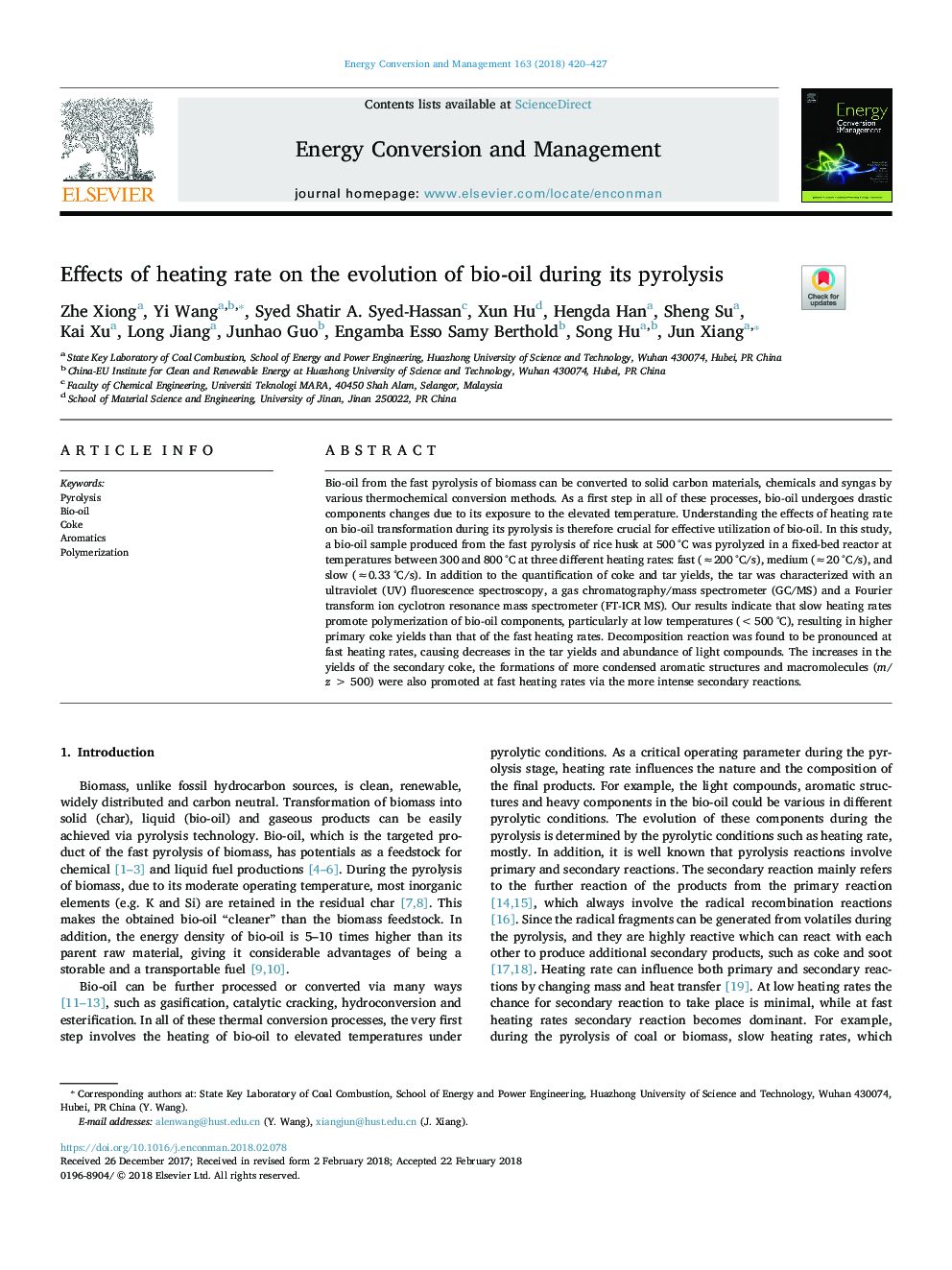| Article ID | Journal | Published Year | Pages | File Type |
|---|---|---|---|---|
| 7158825 | Energy Conversion and Management | 2018 | 8 Pages |
Abstract
Bio-oil from the fast pyrolysis of biomass can be converted to solid carbon materials, chemicals and syngas by various thermochemical conversion methods. As a first step in all of these processes, bio-oil undergoes drastic components changes due to its exposure to the elevated temperature. Understanding the effects of heating rate on bio-oil transformation during its pyrolysis is therefore crucial for effective utilization of bio-oil. In this study, a bio-oil sample produced from the fast pyrolysis of rice husk at 500â¯Â°C was pyrolyzed in a fixed-bed reactor at temperatures between 300 and 800â¯Â°C at three different heating rates: fast (â200â¯Â°C/s), medium (â20â¯Â°C/s), and slow (â0.33â¯Â°C/s). In addition to the quantification of coke and tar yields, the tar was characterized with an ultraviolet (UV) fluorescence spectroscopy, a gas chromatography/mass spectrometer (GC/MS) and a Fourier transform ion cyclotron resonance mass spectrometer (FT-ICR MS). Our results indicate that slow heating rates promote polymerization of bio-oil components, particularly at low temperatures (<500â¯Â°C), resulting in higher primary coke yields than that of the fast heating rates. Decomposition reaction was found to be pronounced at fast heating rates, causing decreases in the tar yields and abundance of light compounds. The increases in the yields of the secondary coke, the formations of more condensed aromatic structures and macromolecules (m/zâ¯>â¯500) were also promoted at fast heating rates via the more intense secondary reactions.
Related Topics
Physical Sciences and Engineering
Energy
Energy (General)
Authors
Zhe Xiong, Yi Wang, Syed Shatir A. Syed-Hassan, Xun Hu, Hengda Han, Sheng Su, Kai Xu, Long Jiang, Junhao Guo, Engamba Esso Samy Berthold, Song Hu, Jun Xiang,
